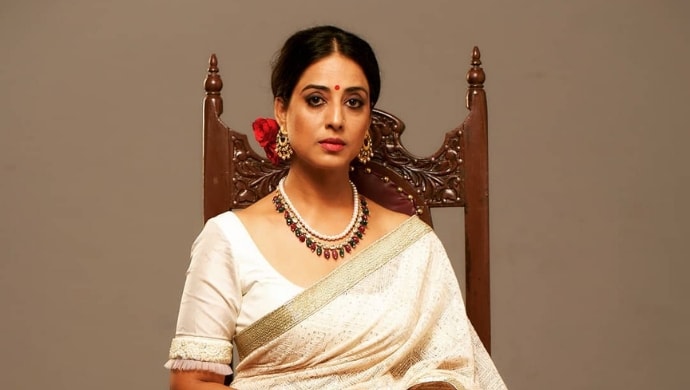Two baby names in 1947
Chapter 1. Mahi-ad-Din
The two-syallable word mahi can mean a couple of different things.
It is a name of a type of neurophysiological disorder in Sinic civilization, but it is a name normally associated with greatness in Indic civilization, and it is a sobriquet of Prophet Muhammad in Mediterranean civilization. Thus
Mahi ≠ Mahī ≠ Māḥī
- (2-mora) Mahi (𝅘𝅥𝅘𝅥=) is a two-mora Japanese word
麻 痺 . It is used by them to transcribe the sound of the Chinese word 麻痹 (mábì = Beijing The word is given different phoentic values by Fujian (麻痹 = bâ-pì), Guangdong (麻痹 = mā-bei) and Korean (痲痹 = 마비 = ma-bi) speakers.standard pronunciation). - (3-mora) Mahī (𝅘𝅥𝅗𝅥=), is a word of Indic origin (मही ), which usually means Mother Earth, and it can be used to mark terrestial features such as large bodies water or soil. The name of usually used to name Hindu baby girl. Sometimes, Indians use Mahī to imply largeness, vastness or state of superiority, and it has a cousin named Mahā (𝅘𝅥𝅗𝅥 = महा).
Mahi (ਮਾਹੀ) Gill in Saheb Biwi Aur Gangster 3 (2018) - (4-mora) Māḥī (𝅗𝅥𝅗𝅥=) is a rather common name for Muslim baby boys, and it is usually spelt as “ماحي" in Arabic script. The name is one of the five sobriquets (i.e. Muhammad, Ahmad, al-Maḥi, al-Hashir, al-Aqib) for Prophet Muhammad in Hadith (Sahih al-Bukhari 3532). Al-Maḥi (الْمَاحِي) is associated with eradication (يَمْحُو) of al-kufr (الْكُفْرَ).



▲ (left) Daryabo Doryab album cover by Iranian percussionists Mahioddin Shabani (2018) ▲ (middle) Algerian tenor Mahieddine Bachtarzi (1897 - 1986) ▲ (right) Afghan folk musician Ghulam Mahiuddin Farukh
Since Muhammad Yassin Mohamad was a Muar-based Islamic scholar, it is only reasonable for me to assume that Māḥī was the name he picked for his new baby boy in Gregorian date: Thursday, 15 May 1947. Islamic date: 24th day of the 6th month of 1366. Chinese date: 丁亥年三月廿五日 Chinese Lunisolar Year of Pig, 25th day of the 3rd month.1947.
- (2-mora) Mahi (𝅘𝅥𝅘𝅥=) is a two-mora Japanese word
麻 痺 . It is used by them to transcribe the sound of the chinese word 麻痹 (mábì = Beijing standard pronunciation).しかし、なんでダンプにはねられた。奴しか死因を 書いてないんだ。面倒だからか?
- (3-mora) Mahī (𝅘𝅥𝅗𝅥=), is a word of Indian origin (मही), which usually means the opposite of the firmament, and it can be used to mark terrestial features such as large bodies water or soil. The name of usually used to name Hindu baby girl. Sometimes, Indians use Mahī to imply vastness, greatness or state of superiority, and it has a cousin named Mahā (𝅘𝅥𝅗𝅥 = महा).
- (4-mora) Māḥi (𝅗𝅥𝅗𝅥=) is a rather common name for Muslim baby boys, and it is usually spelt as “ماحي" in Arabic script. The name is one of the five sobriquets (i.e. Muhammad, Ahmad, al-Mahi, al-Hashir, al-Aqib) for Prophet Muhammad in Hadith (Sahih al-Bukhari 3532). Al-Mahi (الْمَاحِي) is associated with eradication (يَمْحُو) of al-kufr (الْكُفْرَ).

in 2016. It took approximately 40 million ringgit and 4 years to build.
Mr. Yassin then decorated the name with a common arabic suffix ad-Din (الدين), thus completing the name of his son. Similar construction can be found in India, but suffix glued to “Māhi" is usually romanized to ud-Din (in Calcutta) or ed-Din/eddine (in north Africa) or od-Din (in Tehran) even though they are identical in their arabic spelling.
Now, we must remember Mr. Yassin was a man of high religious learning who can obviously read and write. So, the probability of him making silly spelling and pronunication mistakes was practically nil.
Chapter 2. A-n-w-r
The choice of baby boy name of a certain Mr. Ibrahim in Bukit Mertajam is a lot more straightforward. A mono-syllable word, n-ū-r (نور), the arabic word for light, was chosen.
The amphibious nature of the و-script allows the same word to be also pronounced as n-w-r, the ʾalif hamzah prefix ʾa is then added to the n-w-r, and the name ʾa-n-w-r (أنور) was resulted.
33 years later, the word n-ū-r was again used. This time, it was used to name his granddaughter.
The -syllable Malay word for light, chaya, is usually not used to name babies, although Chāyā is actually the name of the consort of Suria, the Indian sun god.







Comments